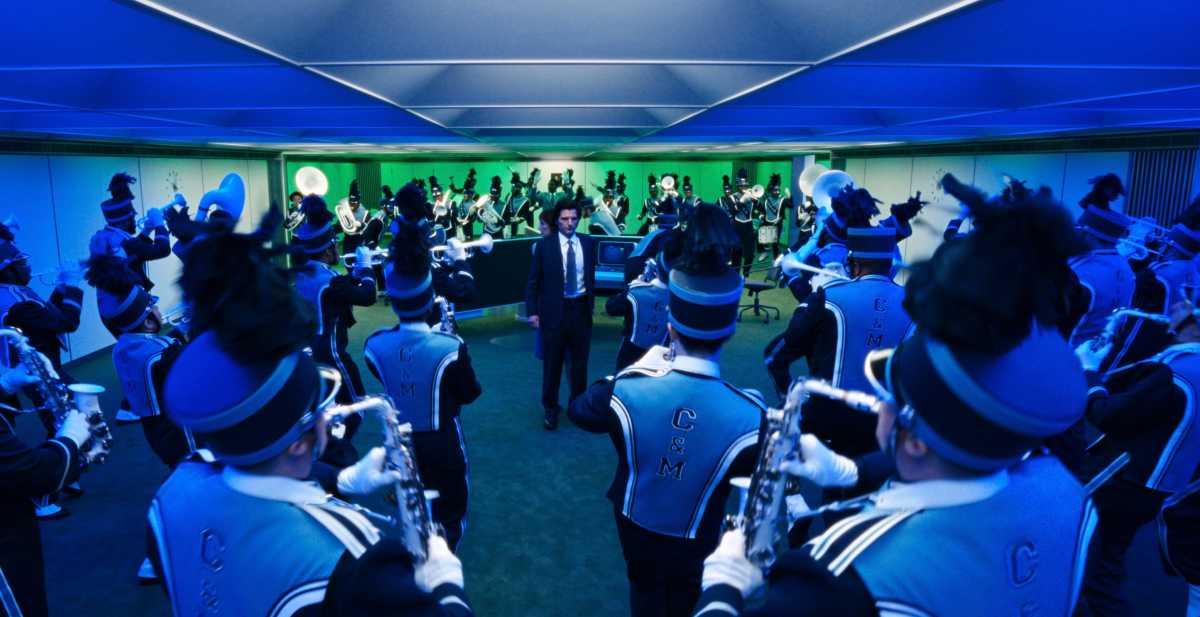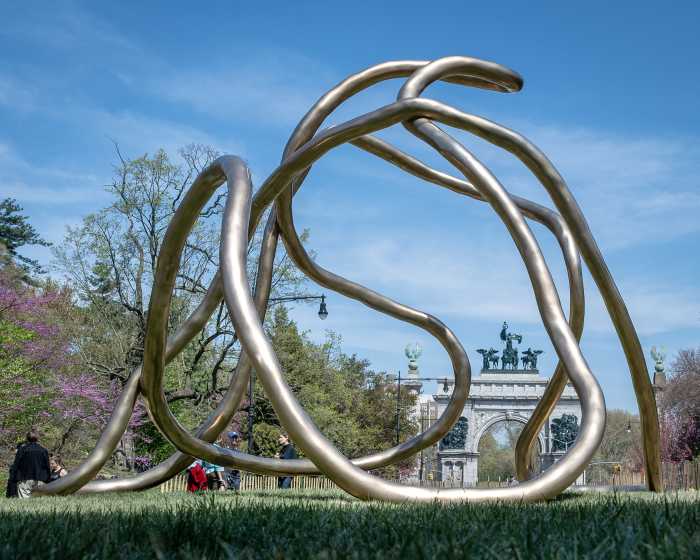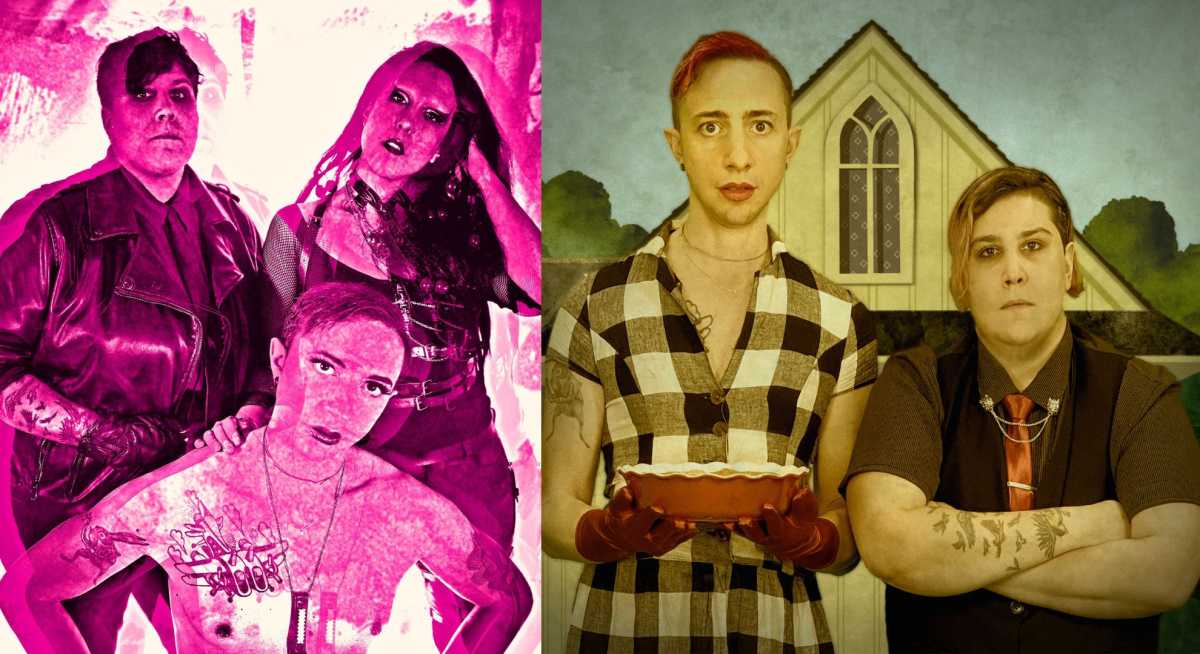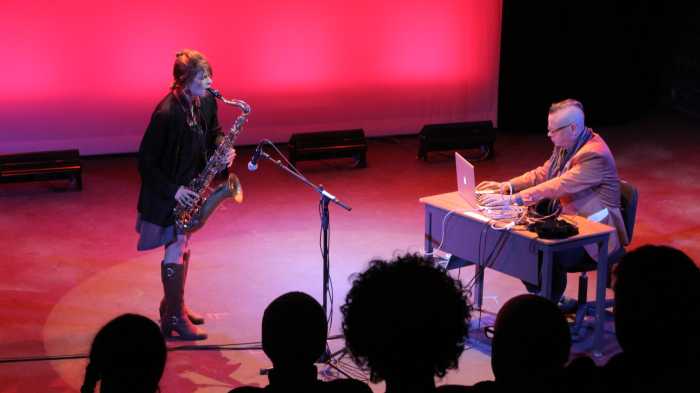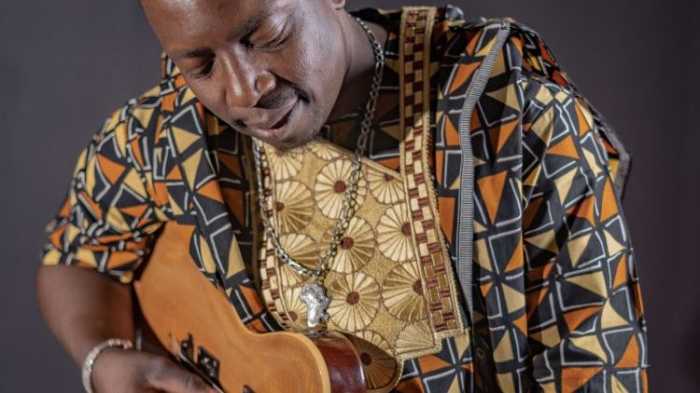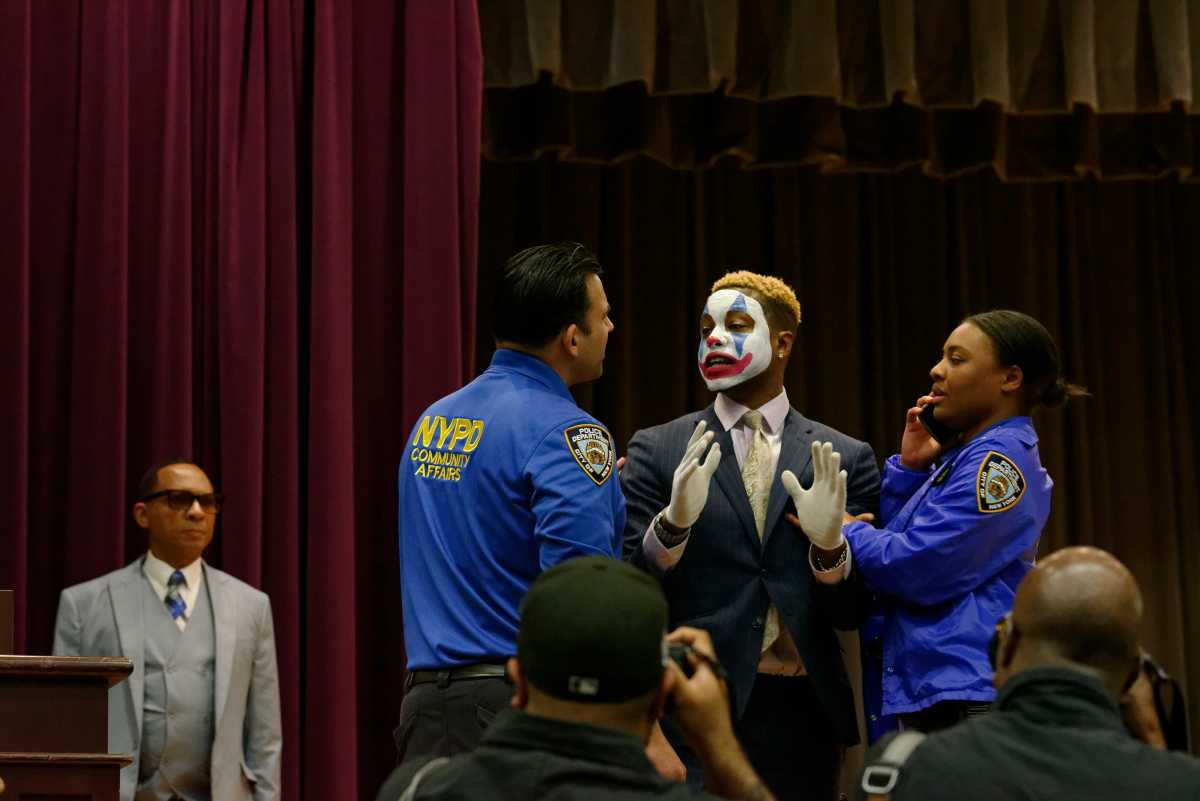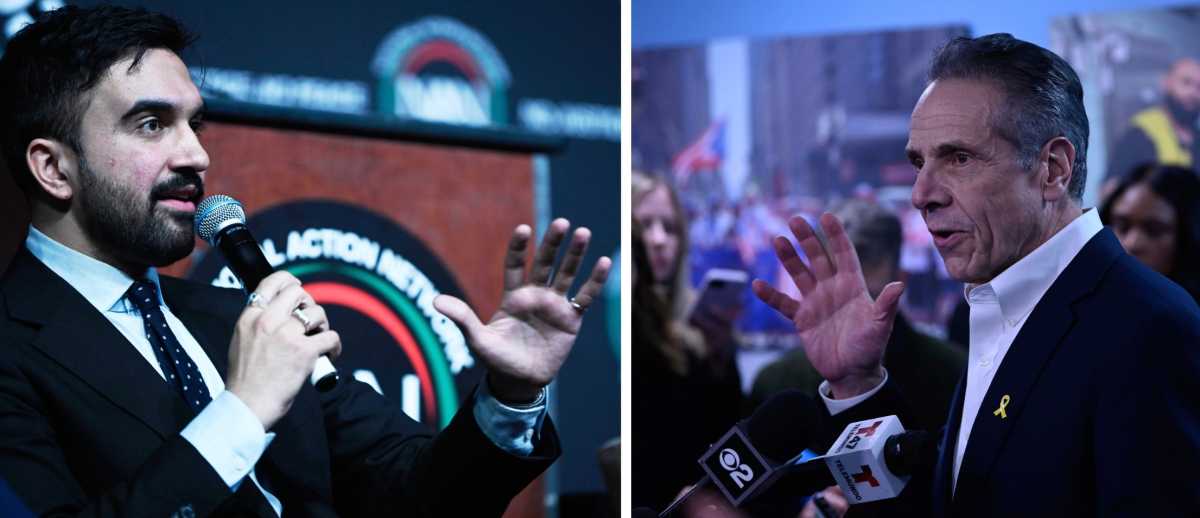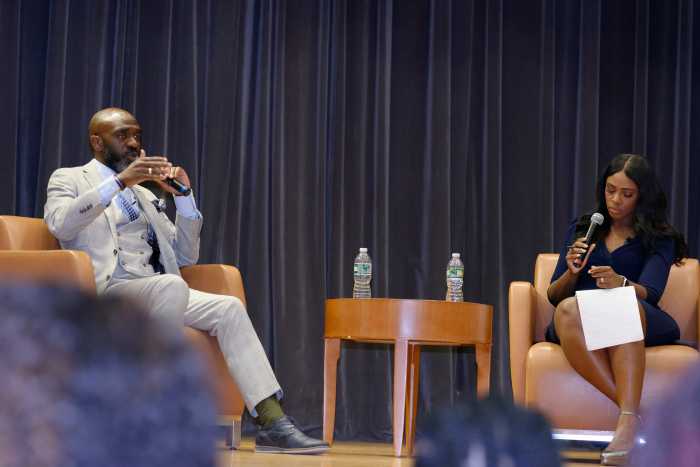When Crown Heights native Ty Brown got an email about working on a major television show last spring, he knew right away it would be a big deal, even though producers kept the name of the show hush-hush.
But it quickly became clear. The critically-acclaimed drama “Severance” was working on its second season, and they needed someone to put together a marching band for a big scene in the finale. Brown, the founder of Brooklyn United Music and Arts Program, told them he was exactly the guy they needed.
“I would say to them, ‘Whatever you’re asking for for a marching band, no matter what style — drum corps style, HBCU style — I’m telling you, I speak the language,’” he said. “I’ve called cut, I’ve called action, I know film.”
Brown was hired as a consultant and Marching Band Manager and given permission to hire more than 100 people for the episode. He got audition tapes from all over the tri-state area, many from Brooklyn United alumni.
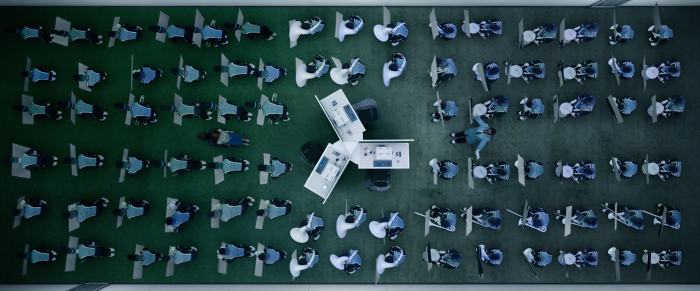
“Severance” wanted diversity among the band, so he chose musicians of all kinds — jazz musicians who had never been in a marching band, drum corps members who had never marched in the style of HBCUs, and plenty of complete strangers.
Rehearsals started in Brooklyn, as the band learned the songs they’d perform on-set, which were composed by Theodore Shapiro.
“I had people from all over the tri-state area in front of me on day one who had never met, never played before, don’t know the style,” he said. “From day one, I only had about eight rehearsals to get it done. And in eight rehearsals, I was able to form something that looked so good on TV.”
Brown’s role went beyond the music and marching. He discussed the blue uniforms the band wore with the “Severance” costume department and helped the props department find the iconic white instruments the band played in the finale.
After eight rehearsals, it was time to film. Brown said he doesn’t “really get starstruck,” but still found himself a little awed by “Severance” director Ben Stiller.
“Ben is a genius, that’s the truth,” he said. “And you could kind of tell that in the room … everything about what they do, you could tell, was top-notch filmmaking.”
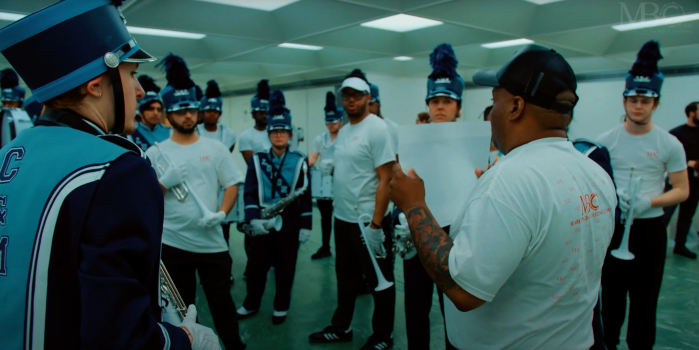
But the crew still stepped back to listen to Brown and the band. They “really wanted to know” the difference between different marching band styles and customs, and were open to changing and adapting as they went.
“They really wanted to know, they didn’t want to assume, they didn’t want to tell me, they really wanted to know,” he said. “‘Well, should we use white shoes, black shoes, spats, gloves?’ Keeping true to the roots of marching band was very important to them.”
When the finale aired on March 21, Brown’s band — known in-universe as the Department of Choreography and Merriment — marched into the show’s harshly-lit office in matching “Lumon” uniforms, led by quasi-antagonist Mr. Milchick — played by Tramell Tillman, and became an integral part of the story.
Tillman recreated the performance live at PaleyFest in Los Angeles and discussed the band at length in the press. Online, fans examined the performance — and what it meant for the show and for Tillman’s character — at length.
In an interview with “Variety,” Tillman said he was inspired in part by the Sonic Boom of the South, the marching band at his alma mater, Jackson State University.
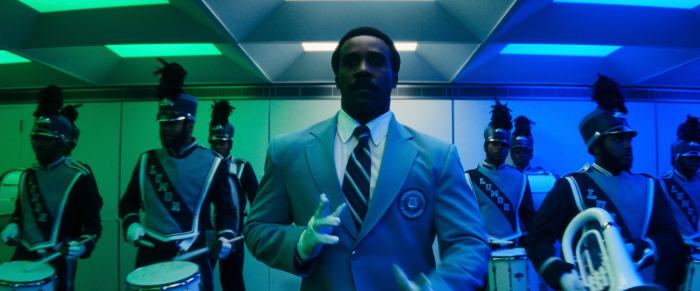
The band did include dozens of graduates from HBCUs, Brown said. But he felt particularly proud that so many had started playing music at Brooklyn United, which has students as young as four years old.
“Somebody might say half the band was represented by 12 different HBCUs,” he said. “That’s a great storyline. But the greatest storyline is that all of those alumni came out of Brooklyn.”
When the “Severance” season 2 soundtrack dropped on Friday, Brooklyn United was credited alongside Shapiro on a marching band track, “The Ballad of Ambrose and Gunnel.”
The experience has been inspiring for young Brooklyn United musicians, Brown said, but not their only source of excitement. The group has been part of plenty of big moments before, and doesn’t plan to stop soon.
“My little guys are always excited about growing up,” he said. “They’re gonna tell you, ‘When I get older, and I get into high school, I’m gonna be on the Brooklyn Nets court. I might be in a movie.’”
He sees his successes, and those of Brooklyn United, as a way to create more opportunities for the future.
“It’s amazing, but it’s really about inspiring our future,” he said. “We are not a group who gets caught up in the moment other than to recognize if we do it right this time, somebody else is gonna have the opportunity [in the future.]”


